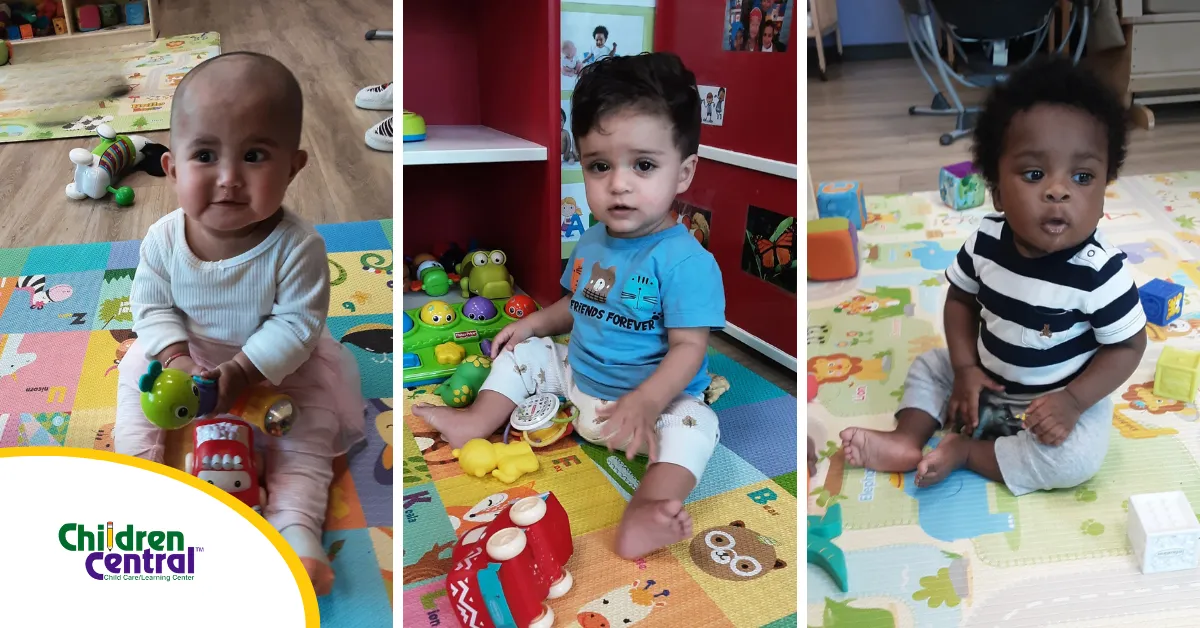Finding high-quality infant care near me in Langhorne, PA, is essential for families seeking a safe, nurturing, and developmentally supportive environment for their child. Early care sets the foundation for social, emotional, and cognitive growth, so choosing a center that aligns with professional standards and family values is critical. Parents must evaluate several factors beyond location, including staff qualifications, safety protocols, learning approaches, and communication practices.
A reliable infant care program ensures personalized attention, age-appropriate activities, and a secure atmosphere that supports the child’s well-being and the family’s peace of mind. This guide outlines seven crucial elements to consider when selecting infant care in the Langhorne area, helping parents make informed choices that promote their child’s optimal early development.
1. What to Expect from a Quality Infant Daycare in Langhorne, PA

A quality infant daycare in Langhorne, PA, should offer a secure and developmentally appropriate environment tailored to infants’ needs. This includes physical safety and emotional support, creating a foundation for healthy growth and learning from the earliest months.
Key elements of a dependable infant daycare program include:
- Low caregiver-to-child ratio: Enables attentive supervision and promotes strong caregiver-infant relationships
- Purpose-built infant spaces: Classrooms should be clean, well-organized, and stocked with safe, age-appropriate materials that encourage sensory and motor development
- Consistent yet adaptable routines: Daily schedules should offer structure while allowing flexibility to meet each infant’s sleep, feeding, and play needs
- Trained, nurturing caregivers: Staff must be knowledgeable in infant development and skilled in responding appropriately to a range of physical and emotional cues
These characteristics support a child’s emotional security and cognitive development. Families seeking infant care should observe whether the environment fosters calm, engagement, and consistent attention. A center that upholds these standards demonstrates its readiness to support infants through the most critical early stages of life.
2. Why Choosing the Right Childcare for Infants Near Me Requires Careful Evaluation
Selecting childcare for infants near me involves more than proximity and convenience. It requires careful evaluation of several critical components directly impacting an infant’s health, safety, and development. Early caregiving experiences shape a child’s emotional well-being and future learning outcomes.
When evaluating infant care options, families should consider the following:
- Caregiver interactions: Observe how caregivers engage with infants. Attentive eye contact, gentle communication, and responsive handling are indicators of quality care
- Attachment and consistency: Reliable, familiar caregivers foster emotional security and help infants build trust in their environment
- Individualized attention: Infants benefit from care that respects their unique schedules, temperaments, and developmental pace
- Environment and materials: The space should be clean, quiet, and designed to support safe exploration with soft surfaces, age-appropriate toys, and secure furnishings
Additionally, families should ask about daily routines, policies, and the center’s approach to developmental milestones. Touring multiple centers and speaking with directors can offer insights into their philosophy and standards of care. Choosing the right childcare is a decision that should be made with thorough attention to both the visible environment and the underlying values that guide the program.
3. The Value of Enrolling in a Licensed Infant Care Center in Langhorne

Enrolling in a licensed infant care center in Langhorne ensures families select a facility that meets or exceeds state-mandated health, safety, and early education standards. Licensing is a formal assurance that the center is regularly inspected, properly staffed, and compliant with all regulatory requirements.
Key advantages of licensed infant care centers include:
- Regulatory oversight: Licensed centers are held accountable through routine inspections that evaluate cleanliness, safety measures, caregiver credentials, and operational practices
- Qualified staff: Licensing requires that staff members meet minimum educational and training standards, including certifications in infant CPR and child development
- Structured policies: Centers must maintain written policies on emergency procedures, health screenings, incident reporting, and secure drop-off and pick-up processes
- Developmental focus: Licensed programs typically follow a curriculum aligned with early learning standards, supporting physical, social-emotional, and cognitive development from infancy
These standards help promote consistency, safety, and overall quality in infant care. Families benefit from the peace that comes with knowing their child is in a setting that prioritizes well-being and meets clearly defined benchmarks for excellence in early education.
4. Cleanliness and Safety Protocols Parents Should Prioritize
Cleanliness and safety are essential to any high-quality infant care environment. Infants have developing immune systems and require meticulously maintained spaces to prevent illness and injury. Parents should prioritize programs with established hygiene practices and clearly defined safety measures when evaluating care centers.
Necessary cleanliness protocols include:
- Frequent sanitization: Toys, furniture, changing areas, and feeding spaces should be disinfected regularly using child-safe products
- Hand hygiene: Staff should wash hands before and after every caregiving task, and handwashing stations should be readily available
- Illness policies: Centers should have guidelines in place for identifying symptoms, managing sick children, and notifying families of contagious conditions
Safety protocols should address the following:
- Secure facility access: Entry points should be controlled through sign-in systems, locked doors, and monitored exits
- Emergency preparedness: Staff must be trained in emergency procedures, including evacuation plans and first aid
- Safe sleep practices: Infants should be placed on their backs in cribs that meet safety standards, with no loose bedding or toys
Families should review these protocols during tours and ask questions about compliance and staff training. Prioritizing health and safety helps ensure a protected and supportive space for infant development.
5. Staff Qualifications and Ongoing Training
The qualifications and training of infant care staff are essential indicators of a center’s overall quality. Caregivers play a central role in early development, and their expertise directly influences the emotional and cognitive growth of the children in their care. Families should seek out programs where staff meet or exceed industry standards.
Core qualifications to look for include:
- Education in early childhood development: Staff should hold relevant degrees or certifications that focus on infant and toddler care
- CPR and first aid certification: All caregivers must be trained in emergency response procedures appropriate for infants
- Background checks: Comprehensive screening ensures a safe environment for all children
Ongoing professional development is equally important. High-quality centers provide:
- Annual training hours: Continued education helps staff remain current on best practices, including infant nutrition, health guidelines, and developmental support
- Workshops and certifications: Participation in early learning seminars and professional programs reinforces caregiver competence
- Mentorship and supervision: New staff should receive guidance from experienced professionals to maintain consistent care standards
A strong commitment to hiring qualified personnel and providing ongoing training ensures that infants receive the highest level of attention and developmental support throughout their care.
6. Curriculum That Supports Early Development
A well-structured curriculum is essential for promoting healthy growth during infancy. While infants learn primarily through sensory exploration and interaction, a purposeful approach to early education ensures that developmental milestones are consistently supported and nurtured. High-quality infant care centers integrate learning into daily routines using age-appropriate strategies.
Key components of an effective infant curriculum include:
- Sensory stimulation: Activities such as tactile play, music, and visual exploration encourage brain development and build neural connections
- Language exposure: Caregivers should regularly engage infants in verbal interaction, including reading, singing, and describing actions to support language acquisition
- Motor skill development: Time spent on the floor for tummy time and guided movement promotes gross and fine motor skills
- Emotional and social learning: Consistent routines and caregiver responses help infants begin to understand emotions, cues, and social patterns
Curriculum frameworks, such as those aligned with Pennsylvania early learning standards, emphasize integrating play, bonding, and learning in a secure environment. Learning objectives for infants are flexible and individualized, ensuring each child progresses at their own pace. A developmentally appropriate curriculum lays the groundwork for future learning by nurturing curiosity, confidence, and early cognitive growth.
7. Transparent Communication and Family Engagement
Transparent communication and active family engagement are essential components of high-quality infant care. Parents and caregivers must work together to support each child’s development and ensure continuity between home and care environments. Open communication builds trust and provides families valuable insight into their child’s daily experiences and progress.
Effective communication practices should include:
- Daily reports: Families should receive updates on feeding times, diaper changes, sleep patterns, and notable behaviors or milestones
- Open-door policy: Centers that welcome parent visits and encourage observation foster stronger relationships and mutual accountability
- Regular conferences: Scheduled meetings provide opportunities to discuss developmental progress, address concerns, and set shared goals
In addition to communication, meaningful family engagement strengthens the care experience:
- Opportunities for involvement: Events, classroom visits, and volunteer options allow parents to participate in their child’s learning environment
- Cultural sensitivity and inclusion: Programs should honor family backgrounds, values, and routines, creating a sense of belonging
- Collaborative goal setting: Caregivers should partner with families to develop individualized plans based on each child’s needs and family preferences
These practices demonstrate a commitment to partnership, transparency, and the child’s well-being. A strong home-care connection enhances learning and supports holistic development.
Conclusion
Choosing the right infant care is a family’s most important decision. By focusing on factors such as licensing, staff qualifications, safety, curriculum, and communication, parents can ensure their child is placed in an environment that fosters healthy development from the very beginning. High-quality infant care in Langhorne supports a child’s growth and provides families with peace of mind, knowing their child is nurtured, protected, and valued daily.
If you’re looking for trusted, professional infant care in Langhorne, Children Central supports your family. Call (215) 398-1076 or visit https://childrencentral.net/contact-children-central/ to learn more or schedule a visit.



